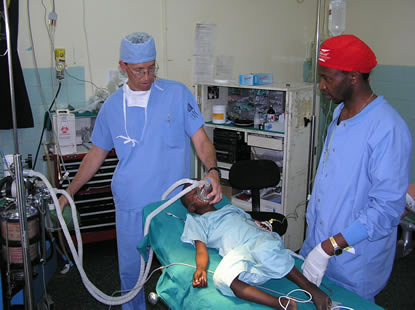Language Development Affected by Anesthesia?
Parents like to imagine what their child might grow up to be like, even while they’re still filling out their wedding invitations or decorating the nursery. With a little bit of luck, your child will grow into a healthy, happy adult without ever needing heavy-duty medical treatment for a serious issue. But life doesn’t always work out that way, and sometimes young kids have to undergo surgery. Surgery often requires anesthesia so that the child sleeps during the procedure without feeling any pain. There have always been risks and complications associated with anesthesia, such as stroke, lung infections, mental confusion, and heart attack. Fortunately, those complications are quite rare. And when compared to the potential consequences of not having the surgery, the choice is often a no-brainer. But recent evidence raises a new question: could anesthesia affect speech and language development?
The Study
A new study released in the August, 2012 edition of the journal Pediatrics explores that question. Dr. Caleb Ing of the Columbia University Medical Center in New York is an anesthesiologist and the lead researcher on the study. He and his colleagues collected data from about 2,600 children who were born in Australia between 1989 and 1992. The children who underwent anesthesia at least once before the age of three totaled 321. When each child reached their 10th birthday, they underwent a battery of tests designed to measure their cognitive skills, speech and language abilities, and motor skills. The tests also evaluated behavioral issues.
http://www.youtube.com/watch?v=XZz390czn0A
The Results
The researchers found that the children’s motor skills and typical behaviors were not affected by the anesthesia. However, the 321 children who had received anesthesia were nearly twice as likely to experience language disabilities than the children who did not have anesthesia. They were also 70% more likely to have trouble with reasoning as compared to the control group.
Conclusions
Another anesthesiologist who was not involved in the study, Dr. David Warner of the Mayo Clinic in Rochester, Minnesota, notes that the average differences in language skills between a child who has had anesthesia vs. one who has not may not be blatantly obvious. That is, a parent or teacher might not notice a difference in speech and language without reviewing the results of a battery of tests.
It’s also important to remember that most of the kids did not experience speech and language delays. Further, the researchers cannot conclusively say that anesthesia administered in early childhood is the cause of language delays and cognitive problems. There may be other, unknown factors in play, something that Dr. Ing acknowledged. Dr. Ing pointed out that his study did not consider the underlying diagnoses and the specific types of surgeries used. Further investigation into this issue is warranted.
Considerations
So what does all this mean for your child? You should definitely talk to your child’s doctor about the possible risks of anesthesia. Weigh the potential consequences of your child having the surgery vs. the consequences of not having it. And remember that the research is still in its infancy. Anesthesiologists are not changing their current practices to reflect this study; they would still recommend surgery in young children when it is needed.




